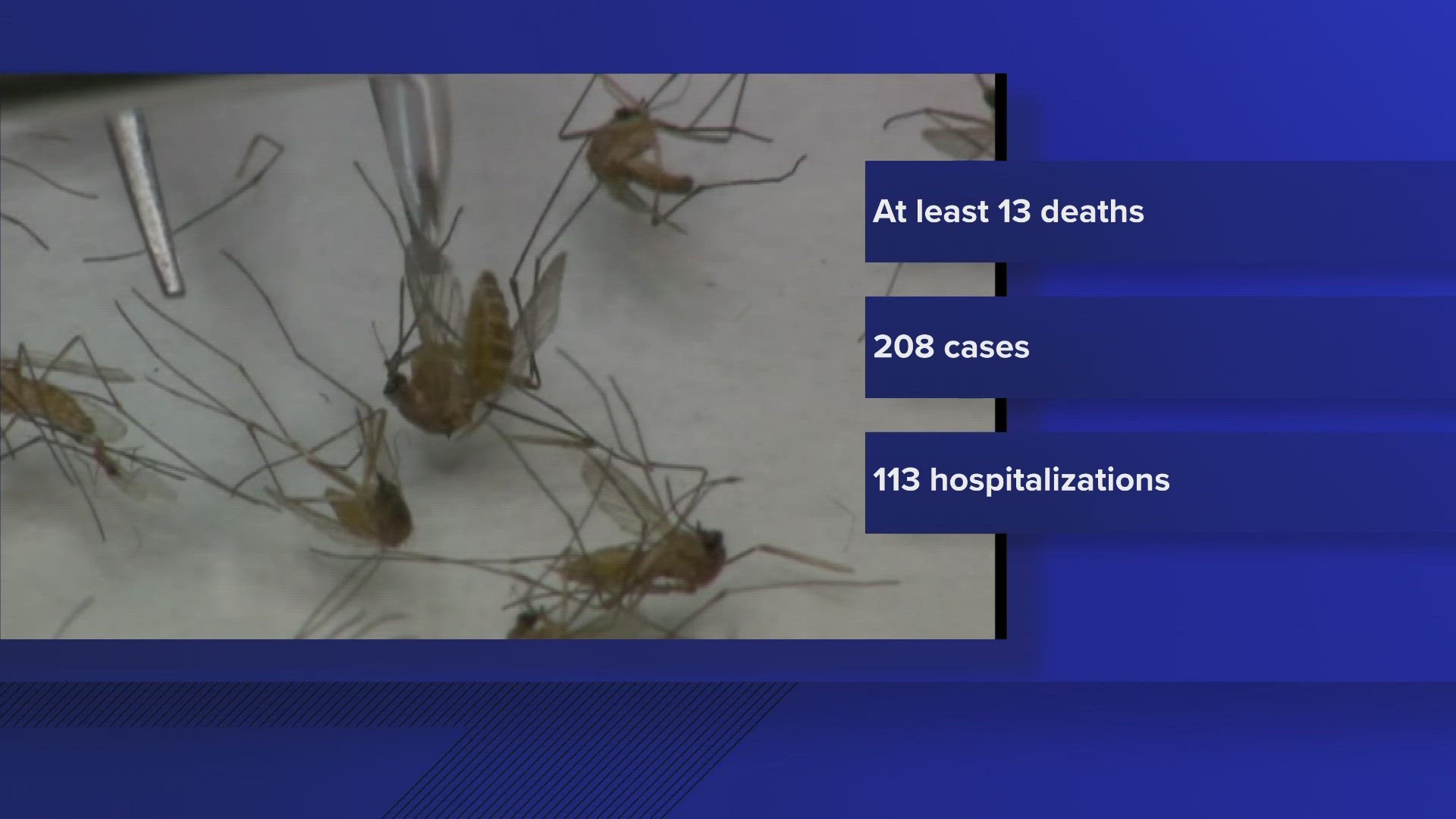ADAMS COUNTY, Colo. — An adult resident from Adams County died after contracting the West Nile virus, the county said in a release Friday. The Adams County Health Department (ACHD) confirmed this as the first West Nile virus-related death in the county this year.
The Colorado Department of Public Health and Environment has reported 208 human cases of the virus and 13 deaths in the state as of Friday.
“In Adams County, 19 West Nile virus cases have been reported since July with most cases reported in August. We expect many more cases will occur in the peak months of September and October," said Dr. Bernadette Albanese, medical officer at ACHD. "Statewide, there are over seven times as many West Nile virus cases being reported in August as compared to the previous five-year average. We consider the risk of being exposed to West Nile virus to be present anywhere in Adams County."
Per the release, data gathered through mosquito testing in the county shows "very high numbers of mosquitoes," including the kind that carries and spreads the West Nile virus: the Culex mosquito.
The CDC said the virus is spread to people by the bite of an infected mosquito and, though most infected people don't show symptoms, one in five will develop flu-like symptoms— more serious, potentially fatal illness is said to occur in about one in 150 people infected with the virus.
ACHD said people 60 years and older, or those with pre-existing medical conditions, have a greater risk of developing serious illness.
The department encouraged all Adams County residents to protect themselves and their community by doing the following:
- Trying to limit time spent outdoors during dawn and dusk when Culex mosquitoes are known to bite.
- Wearing long-sleeved shirts and pants.
- Covering strollers and baby carriers with mosquito netting.
- Using an EPA-registered insect repellent, such as DEET, picaridin, or oil of lemon eucalyptus and following the label instructions for use.
- Using and maintaining screens on windows and doors.
- Frequently draining standing water from areas around the house, such as bird baths, portable pools, tires, planter saucers, buckets, pet water dishes, and children’s swimming pools. Mosquitoes can lay eggs and grow in standing water.
- If there is standing water near your home that cannot be drained, such as ponds or ditches, these areas can be treated with larvicide "doughnuts," which are sold at hardware stores.
Information about how to address mosquito concerns can be found on the Adams County website.
SUGGESTED VIDEOS: Latest from 9NEWS

